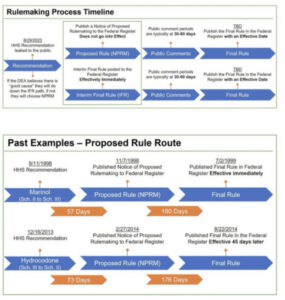The Biden administration has been slow in fullfilling the last campaign promise of helping the cannabis industry….is the DEA waiting
In 2012 Colorado and Washington legalized recreational cannabis. Science, public opinion, how we consume, and support from groups as varied as HHS to Fox News watchers have already moved to supporting federal legalization. In the last election, the Biden administration committed to helping the industry. A key factor is his support of veterans. Veterans, along with federal and medical research, has shown cannabis is a solid help to PTSD. Also, as the country struggles with an opioid crisis, expert believe medical marijuana can be part of the solution. But the administration and dragged it’s feet and now it seems another agency is lingering on change. What is taking the DEA so long to reschedule marijuana. Experts weight in.
Related: California or New York, Which Has The Biggest Marijuana Mess
Terran Cooper, a leading cannabis expert at Falcon Rappaport & Berkman Law shares his thoughts. “While we have comparable examples of controlled substance rescheduling, the ramifications of cannabis rescheduling are beyond anything we’ve ever seen. There are a number of policy issues to be navigated by the DEA, including the existence international drug treaties, which may have delayed the DEA’s review (though Congresswoman Kamlager-Dove and others have argued that applicable treaties shouldn’t prevent rescheduling). The widespread consequences of potential cannabis rescheduling may have also muddied the water, as numerous parties have sought to influence the DEA’s review in various ways. “
“While it is possible that the DEA is attempting to navigate denying the Department of Health and Human Services’ (HHS) recommendation for cannabis to rescheduled, many are skeptical of this likelihood. The HHS recommendation is binding on the DEA (21 USC 811(b)) as to scientific and medical matters, meaning in order to deny cannabis rescheduling the DEA would have to rely on other relevant data to outweigh HHS’ recommendation. This is a tall order, even for the historically cannabis-averse DEA.”

Jesse Redmond, Managing Director at Water Tower Research and a keen analyst for the industry has this take. ““It’s critical to realize the rescheduling process is occurring during an election year and it is possible democrats are coordinating efforts for maximum political impact. Many are pointing to the week of 4/20, which falls on a Saturday this year, for the DEA’s response to the HHS’ recommendation. This would give time for the public comment period and final rule before the elections in November.”
RELATED: Science Says Medical Marijuana Improves Quality Of Life
John Hudak, Director, Maine office of Cannabis Policy has this take. “Cannabis policy is a burning question with a small minority of the public but data show that in congressional campaigns, the vast majority (nearly 90% of candidates) never mention cannabis policy in public. That suggests that most voters are focused on different issues. Despite that, the current cannabis rescheduling petition before the federal government, and initiated by President Biden, is moving at lightning speed compared to every other prior cannabis rescheduling petition.”
“There is no easy explanation of the delay. Some factors are the fact that the DEA and the FDA have different interests in cannabis regulation, the lack of clarity regarding how the DEA would regulate the rescheduled drug, how rescheduling and varied state cannabis laws would intersect, the loss of federal tax dollars when cannabis business expenses become deductible, and political considerations in a presidential election year.” said Lonnie Rosenwald from Zuber Lawler.
The industry is in need of support as consumer demand increase, but the cost of doing business is becoming prohibitive. President Biden and Vice President Harris have been traditionally anti-marijuana, so you wonder if their lack of urgency or support is weighing in on the DEA’s slow walk of a decision.


